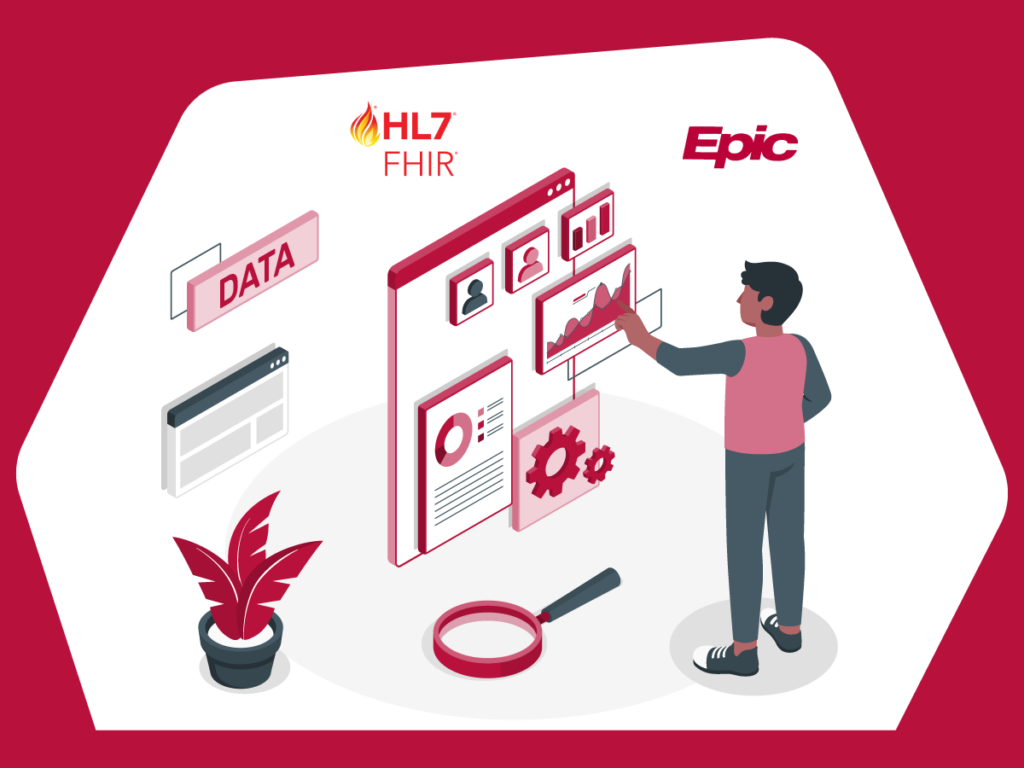
The Future of Healthcare Data Sharing: Why Epic FHIR Integration Matters
In the rapidly evolving healthcare landscape, the need for seamless data sharing has never been more critical. As healthcare advisors and service providers strive to offer better patient and client care, they increasingly rely on electronic health records (EHR) and electronic medical records (EMR) systems to track patient information. However, one of the major barriers to achieving comprehensive healthcare is the fragmentation of data across different systems and platforms. This is where FHIR (Fast Healthcare Interoperability Resources) comes into play. In this blog, we will explore why Epic FHIR integration is crucial for the future of healthcare data sharing and how companies like Itirra, a health tech lab based in Washington State, are leading the charge in building customized solutions for the healthcare industry.
Epic Systems is one of the most widely used EHR solutions in the world, and their adoption of FHIR standards is a significant step toward improving the way healthcare data is shared across systems. By embracing FHIR, healthcare service providers and technology vendors can ensure smoother, more efficient data exchanges, which ultimately result in better care for patients. Let’s dive deeper into the three main reasons why Epic FHIR integration matters: interoperability, data security, and patient-centric care.
The Power of Interoperability in Healthcare
One of the most significant challenges in healthcare has always been interoperability—the ability for different healthcare systems to communicate and exchange data seamlessly. Epic’s integration of FHIR helps solve this issue by providing a standardized format for sharing healthcare data across different platforms. FHIR is an open standard developed by HL7 that enables healthcare providers to access and share data in real-time, regardless of which system is being used.
For organizations like Itirra, which specialize in designing, developing, and deploying bespoke EMR and EHR integration solutions for healthcare industry clients, ensuring that data can flow smoothly between various systems is paramount. FHIR enhances data interoperability by simplifying data formats and making it easier for disparate systems to connect. This is especially critical in a healthcare environment where real-time access to patient data is essential for delivering informed recommendations and ultimately, quality care. Whether it’s a physician advisor, a third-party medical consultant, or a revenue cycle management company, integrating Epic’s FHIR capabilities ensures that all stakeholders in the healthcare ecosystem can access the same information at the right time, improving decision-making and operational efficiency.
Enhancing Data Security and Privacy
Data security is always a top concern in the healthcare industry, especially when it comes to patient health information. Healthcare service providers are bound by strict regulations, such as the Health Insurance Portability and Accountability Act (HIPAA), to safeguard sensitive patient data. With Epic’s FHIR integration, healthcare service providers can benefit from a more secure and streamlined approach to data sharing, ensuring that data is exchanged only between authorized parties.
Unlike traditional methods, which often rely on bulky, legacy systems (e.g. fax machines) that are prone to security breaches, FHIR allows for secure, standardized data exchanges that can be monitored and audited for compliance. This is where companies like Itirra play a vital role—they specialize in bespoke integration solutions that not only connect various healthcare platforms but also maintain the integrity and confidentiality of patient data. As healthcare service organizations increasingly adopt FHIR, ensuring that the integration is secure, HIPAA-compliant, and protected from data breaches becomes a fundamental concern. By using modern standards like FHIR, healthcare service providers can ensure that they are operating in the most secure and compliant manner possible, mitigating the risk of costly security violations.
Improving Patient-Centric Care
At the heart of healthcare is the patient, and improving patient-centric care is a goal for every healthcare service organization. One of the ways FHIR enhances patient care is by enabling healthcare service providers to have immediate access to a comprehensive, real-time view of a patient’s health history. This includes medication records, lab results, immunization history, and past diagnoses, among other critical data points.
Epic’s adoption of FHIR standards allows data from various sources to be aggregated and accessed more efficiently, empowering healthcare providers to make more informed decisions about patient treatment plans. This also benefits patients, who gain more control over their health information, ensuring that they receive better, more personalized care. Itirra, with its deep expertise in developing customized EMR and EHR solutions, helps healthcare organizations implement FHIR-based integration strategies that make it easier for patients to have their data follow them wherever they go.
Streamlining Operations with FHIR
Beyond improving patient care, FHIR integration can also streamline healthcare service operations, making systems more efficient. The traditional healthcare data exchange methods are often slow and cumbersome, causing delays in accessing crucial information. These delays can have a ripple effect, from longer wait times for patient recommendations to inefficient use of healthcare service resources.
With FHIR, healthcare organizations can leverage real-time data access to improve workflow efficiency and reduce administrative overhead. For example, healthcare service professionals can quickly check a patient’s previous treatments, allergies, and medical history, without having to manually search through multiple disconnected systems. This is where companies like Itirra come in, providing the expertise to ensure that FHIR is seamlessly integrated into existing workflows. By automating and simplifying data exchanges, healthcare service providers can focus more on patient care and less on administrative tasks, improving overall operational efficiency.
Facilitating Population Health Management
As healthcare service organizations move toward value-based care, the ability to manage population health is becoming increasingly important. FHIR facilitates this by enabling the aggregation and analysis of large volumes of healthcare data. By connecting different healthcare systems through FHIR, organizations can gain insights into the health trends of specific populations, allowing them to identify at-risk groups, improve preventive care efforts, and make more informed public health decisions.
For organizations like Itirra, which work with a range of healthcare entities, including third-party medical consultants and revenue cycle management companies, FHIR can play a pivotal role in driving data-driven insights that inform better care strategies. By integrating various data sources into a unified view, healthcare providers can proactively address health issues before they escalate, improving both individual and community health outcomes.
The Role of Itirra in Epic FHIR Integration
For over a decade, Itirra, a Washington State health tech lab, has been at the forefront of designing and developing customized EMR and EHR integration solutions. The company’s expertise in creating bespoke systems for healthcare service organizations, including physician advisors and third-party medical consultants, makes them uniquely qualified to help clients leverage Epic FHIR integration to its full potential. Itirra specializes in tailoring solutions that not only meet the technical requirements of FHIR but also align with the specific operational needs and business goals of their clients.
Through its work, Itirra enables healthcare service organizations to enhance their interoperability, streamline workflows, and improve the patient experience.
Conclusion: The Future of Healthcare Data Sharing
The future of healthcare is undeniably intertwined with the seamless sharing of data, and Epic FHIR integration plays a pivotal role in making this vision a reality. With interoperability, data security, and patient-centric care at the forefront, FHIR offers a framework that can transform how healthcare providers access, share, and manage data. As companies like Itirra continue to lead the way in implementing customized solutions, the healthcare service industry is poised for a more connected, efficient, and patient-centered future. By embracing FHIR, healthcare service providers can unlock the full potential of their EHR and EMR systems, paving the way for better care, improved outcomes, and streamlined operations.


